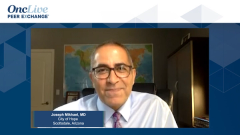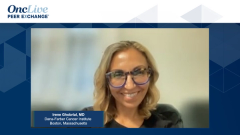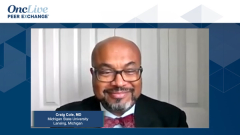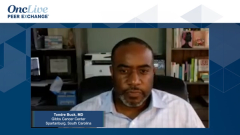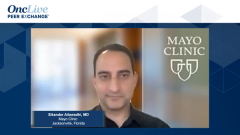
Biological Determinants of Health in Multiple Myeloma
Focused discussion on the biological determinants of multiple myeloma and how its prevalence is reflected in racial and ethnic minority groups.
Episodes in this series

Transcript:
Joseph Mikhael, MD: I'd like us to start in module one. Remember, module one is the biological and societal determinants of health, then we'll talk more about the facts and potential solutions. Let's start thinking about biology. I had briefly noted, Irene that myeloma is twice as common in African Americans and you and I with Egyptian background we may not be Black but we're African and we are in that same high risk group so I know this is not only of scientific interest to you but of personal and family interest to you and I. I wonder if you can help us understand the biology of myeloma. We know of course that myeloma is preceded by a pre-myeloma condition which is also more prevalent in this population. Maybe you can talk to us about that and the incidence of it and how maybe this could ultimately guide some of the things that we can do to bridge this gap.
Irene Ghobrial, MD: Absolutely Joe and you're right it affects us all at a personal level not just scientifically but to truly understand why myeloma happens in many of us, why is it more common in African American than Caucasian and what does it mean to all of us as we get to understand it better. If we think about it we know that every patient who has multiple myeloma must have had the precursor with MGUS or magus like Dr Bob Kyle says, monoclonal gammopathy of undetermined significance and then it may progress to something called smoldering myeloma and then patients would have the end organ damage of myeloma. If we think about it, MGUS truly happens at a much younger age in African Americans, and we still don't know why and it is 2 to 3 times more common in African Americans than White and we still don't know why. When we started the PROMISE study and Joe is part of it and many of you are actually part of it, we started to look at doing mass pictometry instead of serum protein electrophoresis to ask the question if we only enroll people who are at risk, meaning people of African descent or people who have a first degree family member. We found that unlike what Dr Kyle found in Olmstead County which was almost all White and the incidence or the prevalence of MGUS was three to five percent in people over the age of 50, we found a much higher prevalence in that population and indeed we found it almost 25% in those patients. If you take the mass pictometry being more sensitive and you're screening only people who are at risk that's a very high number but again and again we find that almost 10 to 15%, even if you use the higher percent which is the MGUS number not the lower number, we found that that number is much higher in an African population or people of African descent even more than the people with first degree family members and at a much younger age; age 30, age 40 you're finding it. What does that mean? It means that likely we have some germ line inheritance that we carry or an immunological change that we carry that predisposes us to develop at an early age in monoclonal gammopathy, a precursor to myeloma. However, what's good news is that the change or progression from MGUS to smoldering to myeloma so far has not been shown to be at a much higher rate in an African American population compared to Whites. The problem is the number of samples that we have, the data that we have is not big enough for us to say that for sure, so smaller studies are showing that but at least we're not saying that there is a higher chance of progression. In fact, it may be that it may be a lower chance of progression and people who do receive therapy on time likely will have a better survival and better response to therapy and potentially better genomic aberrations compared to the Caucasian population. It behooves us to think can we diagnose it early because if we can diagnose it early and prevent the end organ damage and we can potentially make a difference, the survival will be much better, and we can close that gap in the survival difference that we have.
Joseph Mikhael, MD: Thank you so much Irene, that's so much there to digest but brilliantly described and you made a particularly important note; one of the biologic differences we see is that the average age of diagnosis within African Americans is approximately 5 years younger than the average. In fact, it may be even younger in the Hispanic and Latinx population. Someone might say to me why are you focusing so much on the African American population, there are multiple disparities and partly for time's sake but as my daughter always likes to say; of course dad, all of the houses on my street matter but when one's on fire you need to address that and that's where we're seeing obviously this greatest disparity. Irene, I have one quick question for you on this because I know it's come up and there have been a few publications. I know even Dr Sikander has been involved with some of these. You had mentioned some of the biological differences so MGUS is at least twice as common, we're seeing patients diagnosed at a younger age but when patients have multiple myeloma or African American do we not also see a higher incidence of translocational 11;14 and a lower incidence of P53 deletion and how might that factor into the prognostic piece that you were describing?
Irene Ghobrial, MD: Absolutely and again the reason I didn't mention it too much is because there are some studies that show that but others that do not have that data and potentially because differences and smaller numbers in each of the studies but yes 11;14 is a much better prognostic indicator so having it more common than a P53, which is a worse prognostic marker, indicates that the genomics of myeloma in an African American may be better than a Caucasian. We still don't know why so that's all very interesting but the potential part of it is that this is good news.
Joseph Mikhael, MD: Excellent, that's helpful.
Transcript edited for clarity.


